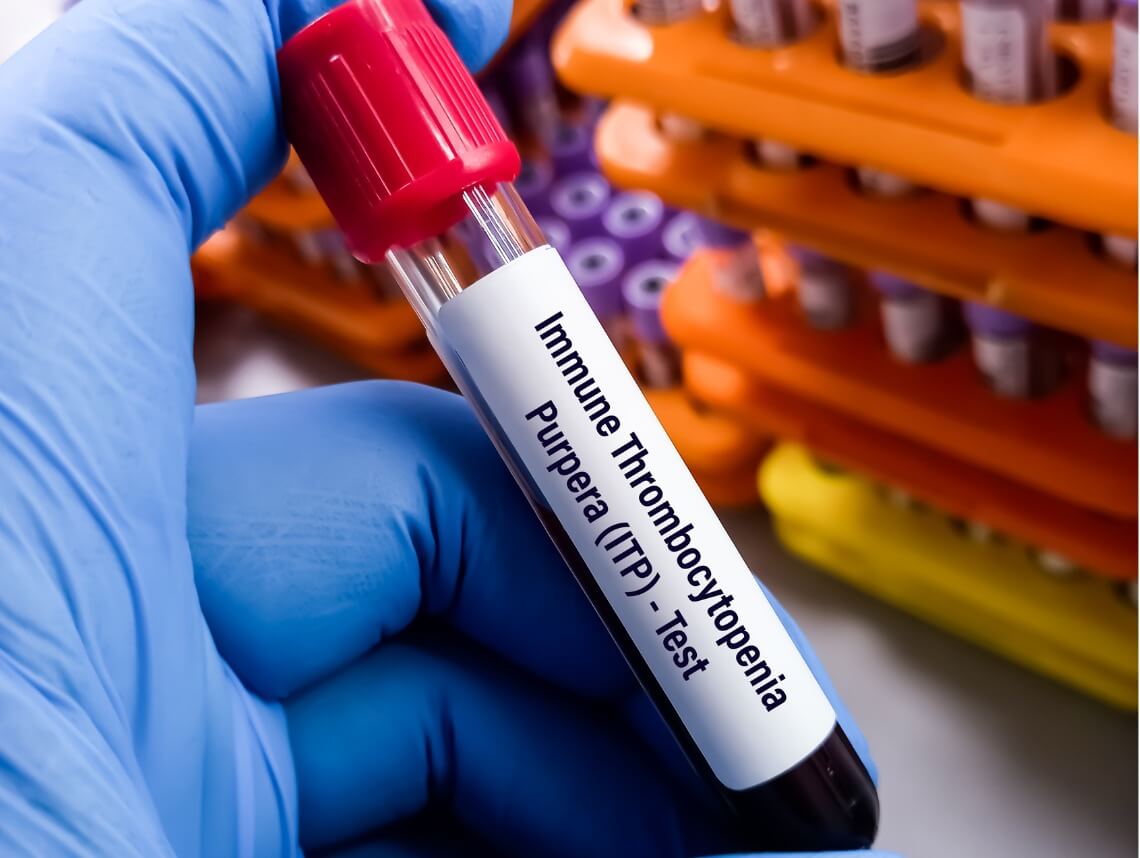Idiopathic thrombocytopenic purpura (ITP) is a rare autoimmune disorder that primarily affects children. ITP can be unsettling for both parents and caregivers. This blog aims to provide insights into ITP, its symptoms, diagnosis, treatment options, and the compassionate care required to support children navigating this condition.
What is idiopathic thrombocytopenic purpura (ITP)?
Idiopathic thrombocytopenic purpura, commonly known as ITP, is an autoimmune disorder where the immune system mistakenly attacks platelets, the blood cells responsible for clotting. This results in a reduced platelet count, leading to a higher risk of bleeding and bruising. The term “idiopathic” signifies that the cause of the disorder is unknown in most cases.
Symptoms of Idiopathic Thrombocytopenic Purpura
The symptoms of ITP can vary and may include:
- Easy bruising and bleeding, such as nosebleeds, gum bleeding, or prolonged bleeding from minor cuts
- Tiny red or purple spots on the skin (petechiae) caused by small blood vessel ruptures
- Excessive menstrual bleeding (in adolescent girls)
- Blood blisters in the mouth or on the skin
- Fatigue and weakness due to potential anemia
Diagnosis of Idiopathic Thrombocytopenic Purpura
Diagnosing ITP involves a comprehensive evaluation by a healthcare professional. Common diagnostic steps include:
- Medical History: Detailed discussion about symptoms, recent illnesses, and family history of bleeding disorders.
- Physical Examination: Thorough examination to identify signs of bruising, petechiae, or other bleeding-related symptoms.
- Blood Tests: A complete blood count (CBC) to determine platelet count and assess other blood components.
Treatment Options for Idiopathic Thrombocytopenic Purpura
The treatment approach for ITP depends on the severity of symptoms, platelet count, and the child’s overall health. Treatment options may include:
- Observation: In mild cases with no significant bleeding, close monitoring may be recommended as the body’s immune system can sometimes spontaneously correct the platelet count.
- Medications: Corticosteroids or intravenous immunoglobulin (IVIG) may be prescribed to suppress the immune response and increase platelet counts.
- Platelet Transfusions: A platelet transfusion might be necessary to quickly elevate platelet levels in severe cases with active bleeding.
- Splenectomy: Surgical removal of the spleen (where platelet destruction occurs) might be considered for chronic or severe cases.
Caring for a Child with Idiopathic Thrombocytopenic Purpura
Caring for a child with ITP requires medical attention, emotional support, and vigilance. Here are some key aspects to consider:
- Regular Monitoring: Scheduled follow-ups with a healthcare provider to monitor platelet counts and overall health.
- Safety Precautions: Minimize the risk of bleeding by ensuring your child wears protective gear during physical activities and avoids activities that might lead to injury.
- Open Communication: Encourage your child to communicate any signs of bleeding or discomfort. Maintain open lines of communication with the healthcare team.
- Nutritional Support: A balanced diet rich in iron and other nutrients helps maintain overall health and energy levels.
- Emotional Well-being: A child with ITP might experience stress or anxiety. Offer emotional support and consider involving a counselor or therapist if needed.
Idiopathic thrombocytopenic purpura can present unique challenges for children and their families. However, with proper medical care, emotional support, and a proactive approach to managing the condition, children with ITP can lead full and active lives. By staying informed, collaborating closely with healthcare professionals, and fostering a nurturing environment, parents and caregivers can empower their children to face the challenges of ITP with resilience and strength.
Contact Care Options for Kids for Pediatric Home Health Care in Florida
It can be hard to balance your time between work, home, and caring for a child. That’s why our team of skilled professionals at Care Options for Kids is here to help.
Our home health care services offer one-on-one care in the comfort of your home. We refer loving and competent nurses to provide customized care for families — from a few hours a day to around-the-clock supervision. Contact us directly to speak with a home health care professional. Together we can determine the best plan of action to keep your loved ones happy and healthy.
If you or a loved one are considering Pediatric Home Health Care Services in Florida, contact the caring staff at Care Options for Kids or request a free pediatric consultation. Call today at (888) 592-5855.






